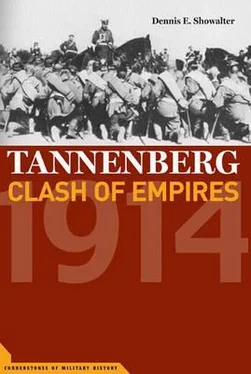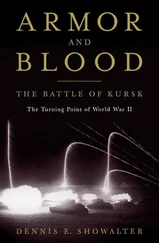From Bülow’s perspective, Russia’s continued demands for an international conference only invited a repetition of the events of Algeciras: Germany and Austria could expect to be outvoted and humiliated. In a century shaped by two world wars and an ongoing threat of nuclear holocaust, negotiations tend to acquire talismanic significance lacking in earlier and simpler times. Bülow was familiar with the axiom that a diplomatic victory is best completed when the loser is allowed to save as much face as possible. But were Russia’s aims really so innocent? It hardly represents a long-term triumph of statesmanship to talk an adversary initially intent on taking five of one’s fingers into resting content with only two. On February 24, Hintze described the unspoken goal of Russia as being the master of the Balkan Peninsula and the Slavic world. The only thing keeping her from falling on Austria was German support. 9This seemed too extreme to be accepted at full value. On the other hand, Russia had overbet her hand badly enough to make calling it a reasonable option on three levels. This might drive a wedge between Russia and her western partners—who had consistently shown their reluctance to underwrite Izvolsky’s initiative. It might help teach Russia a lesson in great-power responsibility, a lesson recent events suggested was badly needed. Finally, by demonstrating to Aehrenthal and company how crisis management should be concluded, it would re-establish German ascendancy in that relationship.
Bülow’s opportunity came in March, when Aehrenthal finally threatened to publish the documents conceding Austria’s right to annex Bosnia and Herzegovina unless Russia cooperated in muzzling Serbia. A desperate Izvolsky appealed to Berlin. Bülow began by suggesting that Russia was attempting to play cards already beaten on the board. German good offices would depend on Russia’s commitment to one thing: controlling Serbia by any means necessary for the sake of European peace. Otherwise Germany would, with deep regret, allow developments to take their course.
Given Russia’s military weakness, domestic turmoil, and diplomatic isolation, any moderate response was welcome. Initial reactions in St. Petersburg were favorable. Then Izvolsky once again muddied the waters. Too much of his career was riding on the annexation issue to enable easy acceptance of what amounted to a clear-cut Austrian victory. Nor was he particularly happy about the possible results of pressuring Serbia to drop her protests. Might this not amount to abandoning permanently both Russia’s Balkan position and the southern Slavs to the Dual Alliance? Izvolsky made his official reply opaque, hoping to negotiate better terms. Instead he strained Germany’s already thin patience to the breaking point. William regarded Izvolsky’s tone as insolent. Bülow felt the matter could be dragged out no longer. Nor did further delay seem necessary. On March 20 Hintze reported a conversation with an assistant to the Russian war minister. According to this official, Germany could be assured that Russia would not draw the sword for Serbia under any circumstances. Only liberals and revolutionaries wanted war. The next day Bülow insisted that Russia give an “unequivocal answer—yes or no” to the question of annexation. If no, then Germany would withdraw from the situation and—repeating a phrase used in the earlier dispatch—let developments take their course. 10
This communication has been described as everything from a highhanded ultimatum to a courageous attempt at ending a dangerous situation by plain speaking. Interpretations have been complicated by German journalists and politicians who ranted about “Nibelungen loyalty” to Austria and the virtues of mailed-fist diplomacy. Technically, an ultimatum is a final opportunity for the receiving government to accept the stated terms or face direct coercion. This means that both involved parties must have a similar understanding of the diplomatic situation, and both must be aware that the communication has been submitted for the purpose of providing an either/or alternative. The German note did not meet the criteria because it contained no threat of positive actions. Announcing the intention of standing by in a crisis is no more than a statement of proposed behavior. The recipient of the statement remains free to act in his own perceived best interests. Russian finance minister V. N. Kokovtsov supported that position by telling the British ambassador that the German démarche “was not an ultimatum; it might perhaps even be admitted that it did not actually put any direct pressure on the Russian Government.” 11
From other perspectives, however, the distinction seemed irrelevant because Russia was in no position to give a negative answer. Her ministers agreed unanimously to accept the annexation—not least because Izvolsky’s nerve broke and he insisted to all and sundry that failure to comply meant immediate and hopeless war. But “[i]n two, three, or four years,” Stolypin declared privately, Russia “would be able to speak in European affairs with a very different voice from what was now the case.” 12
Russian grievances at having her hand thus forced were assiduously nurtured by France and Britain. Neither power, however, was ready to take concrete risks to support Russian aggrandizement in the Middle East. In the context of the intensifying naval race with Germany, the British foreign office in particular wanted a general settlement taking reasonable account of intensifying Balkan nationalisms. 13This last was a significant point. Nationalism in the Balkan Peninsula was by now anything but an imported doctrine. It reflected the emergence of both strong popular elements and correspondingly strong local elites, intellectual and bureaucratic, able and willing to act independently in their own perceived interests, and requiring careful handling by any would-be ally or patron. 14In this context Bülow could and did reasonably claim that he had done Russia a favor, extracting her from an impasse that was as dangerous as it was embarrassing.
The German foreign office spent the rest of 1909 working to diminish the impression of compulsion left by the March note. Six months after the crisis Izvolsky proclaimed Russo-German relations as back to normal. By February, 1910, Pourtalès was describing a renewed stress in conversations on Russia’s “old traditional friendship” with Germany, but warned his government not to be deceived. The ambassador described recent Russian behavior as explainable only by the Slavic qualities of “sentimentality, passion, superficiality and illogic,” which excluded any sober judgment of realities. The press continued to present the German démarche as a series of peremptory threats, and spoke of a “coup de main” and a “diplomatic Tsushima.” Hintze too believed that whatever might be her temporary military weaknesses, Russia had psychological preparations for a war well under way. Even men like former war minister Alexi Kuropatkin, who described Russia as already large enough, needing rest after the revolutions of 1905, and wrong in her policies of reconciliation with Britain, had a way of punctuating their conversations with demands for the Bosporus and the Dardanelles. The best way of countering this attitude, Hintze argued, was to make Germany seem an enemy too formidable to tackle, either alone or in company with allies. Above all, Russia must fear Germany more than Britain. 15
As if to confirm Hintze’s position, the Russian army departed from precedent in using real states as “enemies” in its 1910 maneuvers. That year’s mock war was declared against Germany and Sweden. More was involved here than a simple lack of tact. The elder Moltke had always argued that even a great power could prepare and organize for no more than one war. For Russia, that increasingly seemed to be a war with Germany and Austria. The continued strength of Slavic rhetoric in Russian policy making owed much to a sense that Teutonic dismissal of lesser Balkan breeds without the law implied denial of Russia’s place among the truly civilized races. Though, Hintze argued, German policy makers might see no possible gains from a victory over Russia, war with Germany would be not only acceptable but popular in the tsar’s empire. 16
Читать дальше












